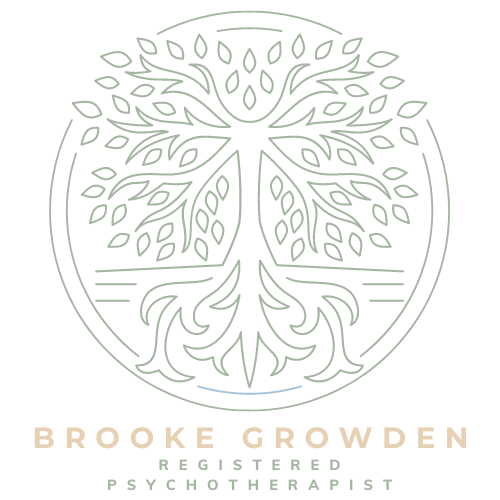What is Psychotherapy?
Have you been considering psychotherapy but feel unsure about what to expect?
Have you been curious about what lies beneath the surface of your thoughts, emotions, and behaviours?
Are the maps that have been guiding you no longer relevant?
Whether you’re seeking support for anxiety or depression, experiencing PTSD symptoms, or looking for personal growth and transition, understanding what happens in therapy can ease some uncertainty about taking the next step to make an appointment. Psychotherapy is more than just talking; it’s a collaborative, empowering process tailored to foster personal growth, emotional resilience, and healing.
This article will demystify psychotherapy and compare some different approaches, such as psychodynamic, attachment-based, and trauma-informed therapy. By the end, you’ll have a clearer understanding of how psychotherapy works and feel more confident about taking the next step toward your personal growth.
At its core, psychotherapy is a safe, confidential space where you can explore your thoughts, feelings, and behaviours with a Registered Psychotherapist. The aim is to support you as you gain insight into your experiences, address emotional challenges, and develop new strategies for being in the world.
Different types of therapy cater to unique needs, but all share a common goal: helping you build a more resilient, balanced relationship with yourself and others.
Key Approaches to Psychotherapy
Psychotherapy isn’t one-size-fits-all. Depending on your circumstances and goals, your therapist might use one or more approaches. Here are some of the approaches I use in my practice:
Psychodynamic Therapy: This approach focuses on understanding how past experiences influence your current thoughts and behaviours. It often dives deep into unconscious patterns to create meaningful, lasting change. Rather than addressing only surface-level symptoms, this depth psychotherapy approach aims to explore what’s beneath. Over time, patients gain clarity about the internal conflicts or emotional blocks that may have been holding them back. This greater awareness empowers you to make positive changes.
Attachment-Based Therapy: Rooted in attachment theory, this method helps you explore how your early relationships shaped the way you connect with others. Understanding these patterns can lead to healthier current relationships.
Trauma-Informed Therapy: For individuals who’ve experienced trauma, this approach prioritizes creating a safe and supportive environment while addressing the effects of trauma at your own pace.
Benefits of Psychotherapy
Wondering if psychotherapy is right for you? Here are some of the benefits in engaging with psychotherapy:
Deeper Self-Awareness: Learn more about the unconscious forces driving your thoughts, emotions, and actions.
Unlocking Root Causes: Address the deeper origin of emotional pain, rather than treating just the symptoms.
Improved Relationships: Understand your patterns in relationships and work toward healthier connections.
Personal Growth: Enhance your capacity for self-reflection, creativity, and resilience.
“This is a different space. In this space, there will be more room for you than you’ve become accustomed to. In this space, I will wait—we will wait—to encounter you on your terms”
Now that we’ve covered the foundations, you may be wondering, what actually happens during a session?
What to Expect in a Therapy Session
Entering into your first session can feel daunting. Knowing what usually happens can make things more comfortable. While no two sessions are identical, here are some common aspects you can expect:
The First Session
In your first session, your therapist will create a space to begin getting to know you. You might talk about:
Why you’re seeking therapy.
Your current challenges and stressors.
Any past experiences or trauma that are affecting you.
Exploring Your Thoughts and Feelings
Subsequent sessions often involve exploring specific issues at a pace that feels right for you. Your therapist might support you to:
Reflect on situations or emotions that are causing distress.
Identify patterns in your thoughts or behaviours.
Work through unresolved feelings from past experiences.
Developing Coping Strategies
Therapy isn’t just about looking inward; it can also be about supporting you to develop practical tools to manage life’s challenges. Depending on your needs, this might include:
Skills to handle emotional triggers.
Techniques for improving communication in relationships.
Grounding exercises, mindfulness, or meditation practices.
Confidentiality and Safety
One of the most important aspects of therapy is confidentiality. Your therapist is there to listen without judgment, creating a space where you can express yourself freely and honestly.
Taking the First Step Toward Healing
Psychotherapy is more than just a talking cure; it’s a pathway to self-discovery, healing, and resilience.
If you're feeling stuck in old patterns, carrying unresolved pain, or simply ready to better understand yourself, psychotherapy could be the key to unlocking a new level of self-awareness and fulfillment.
You can read more about my practice working with individuals here.
Curious about starting your own therapeutic exploration? By reading this, you have already take the first step. Take the next step, and reach out for a consultation. Your personal growth and healing are worth it.
Quatman, T. (2015). Essential Psychodynamic Psychotherapy: An Acquired Art. Routledge. https://doi.org/10.4324/9781315750095


